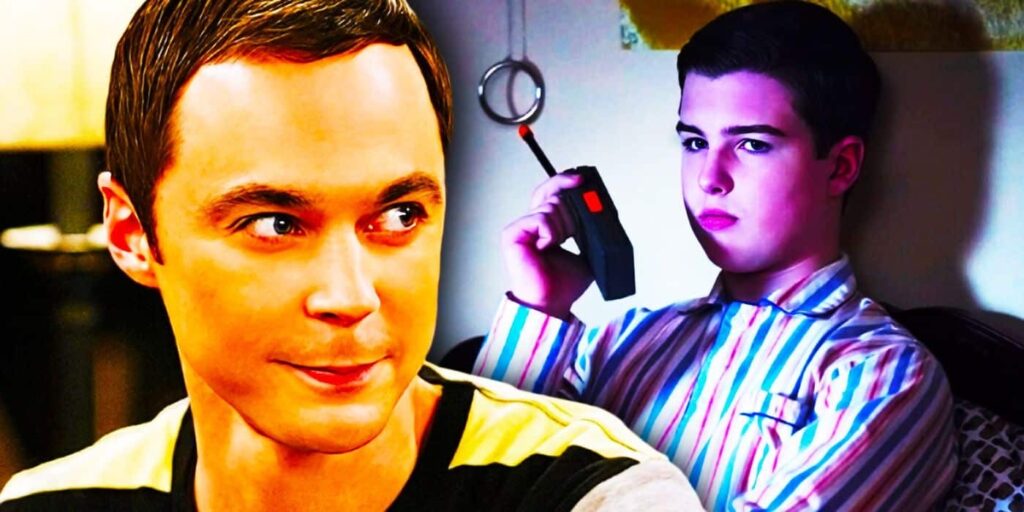
The Big Bang Theory remains iconic, even after its 2019 finale, thanks to its endearing characters and memorable moments. One such moment involved Sheldon Cooper (Jim Parsons) discovering his mother, Mary (Laurie Metcalf), in a compromising situation with another man. It was a shocking scene that left Sheldon conflicted and estranged from his mother. Enter Young Sheldon, the prequel series that aimed to delve deeper into his backstory and explain the origin of this traumatic event in a way that tied the two shows together.
Rewriting the Narrative: Mary’s Unfaithfulness?
The portrayal of Mary’s character in Young Sheldon added complexity to the story that The Big Bang Theory hinted at but never fully explored. While in The Big Bang Theory, Sheldon believed his father, George Sr. (Laurence Barber), was the unfaithful one, Young Sheldon reimagines it to suggest that Mary might have been the one who betrayed George. This revelation came through her growing connection with Pastor Rob (Dan Byrd), which started innocently but eventually sparked feelings and fantasies that led George Sr. to believe he was being cheated on.
In The Big Bang Theory, Mary is seen as a strict, churchgoing woman who teaches conservative values. However, Young Sheldon humanizes her character by showing that she struggled with her beliefs and the conflicting nature of her actions. This shift surprised some fans who saw it as a deviation from the emotional truth established in The Big Bang Theory, but it also offered a new lens through which to view George Sr., portraying him as a victim rather than an unfaithful husband.
Explaining the Confusion: Sheldon’s Perspective
The infamous scene in The Big Bang Theory, where Sheldon discovers his mother’s affair, is given more context in Young Sheldon. In Season 7, Episode 18 of the sitcom, Sheldon recounts seeing his mother in a compromising situation and believing it was his father who was unfaithful. However, Young Sheldon clarifies that Sheldon’s misunderstanding came from not recognizing his mother because she was wearing an Oktoberfest-themed costume and partaking in role-play with George. This twist helps explain Sheldon’s emotional turmoil and the reasons behind his perception of betrayal.

The Reception: Fans’ Mixed Reactions
While Young Sheldon successfully tied this backstory into The Big Bang Theory’s canon, not all fans welcomed the changes. The show’s comedic tone, while consistent between both series, sometimes undercut the weight of serious topics. The shift to portray Mary in a more flawed light surprised many and created a debate about whether this undermined the original story’s emotional depth.
Yet, this nuanced portrayal also brought new insight into Sheldon’s upbringing and allowed viewers to understand the complexities behind his sometimes misunderstood behaviors. The humor in The Big Bang Theory often masked deeper themes, such as family betrayal, which Young Sheldon addressed with a more balanced approach.
The Legacy of Sheldon Cooper
Whether fans embraced or resisted the changes, there’s no denying that Sheldon Cooper, with all his quirks and peculiarities, continues to be a central figure in the Big Bang universe. The character’s mix of humor, innocence, and misunderstanding is what captured audiences’ hearts, making him a memorable and relatable figure.
Now, with spin-offs like Young Sheldon and rumors of new shows focusing on other characters, the franchise remains a source of fascination and debate. Sheldon’s story may have evolved, but it’s his unique take on life—full of confusion, humor, and moments of growth—that continues to make him beloved.